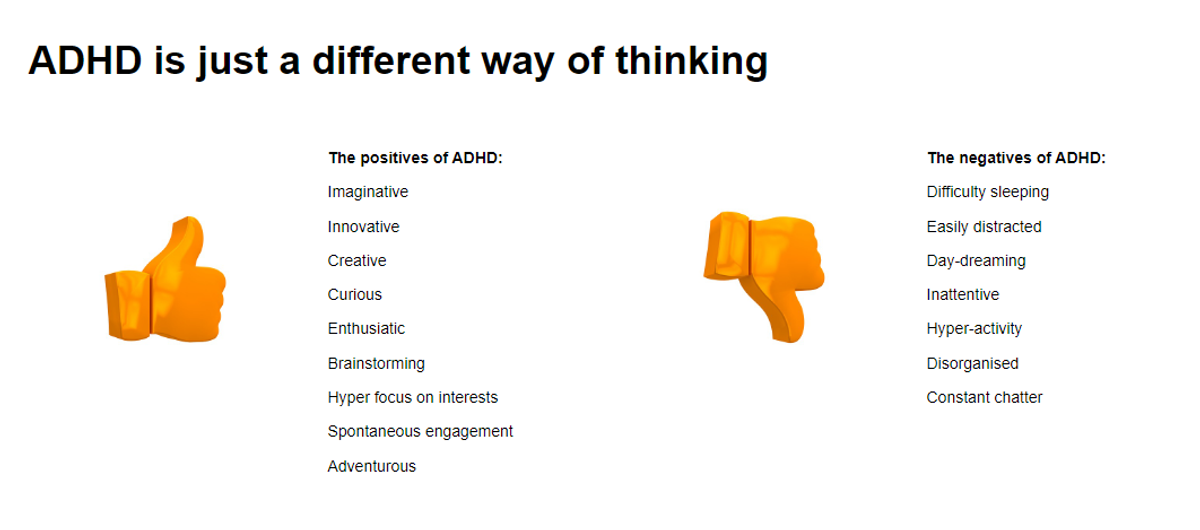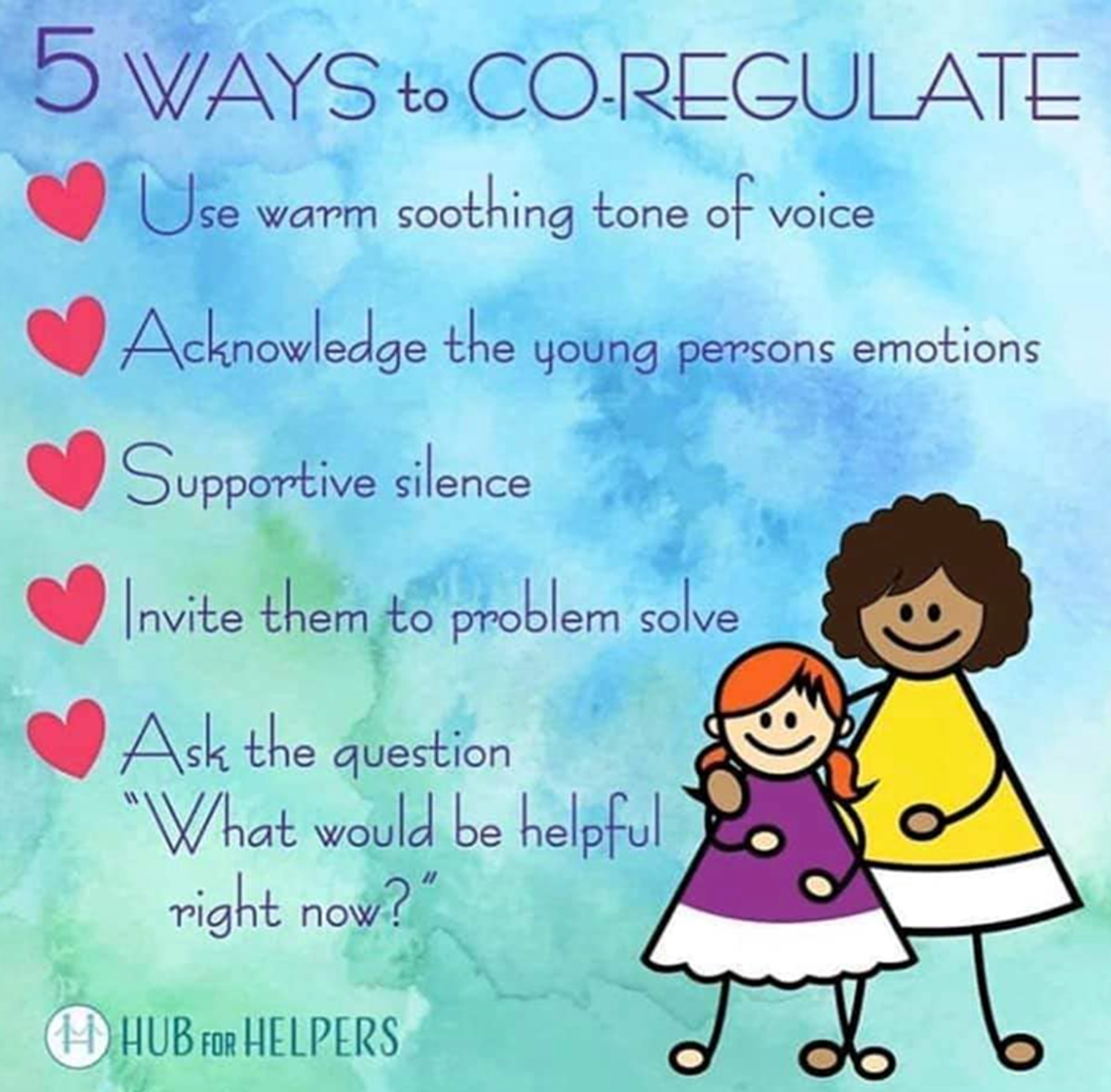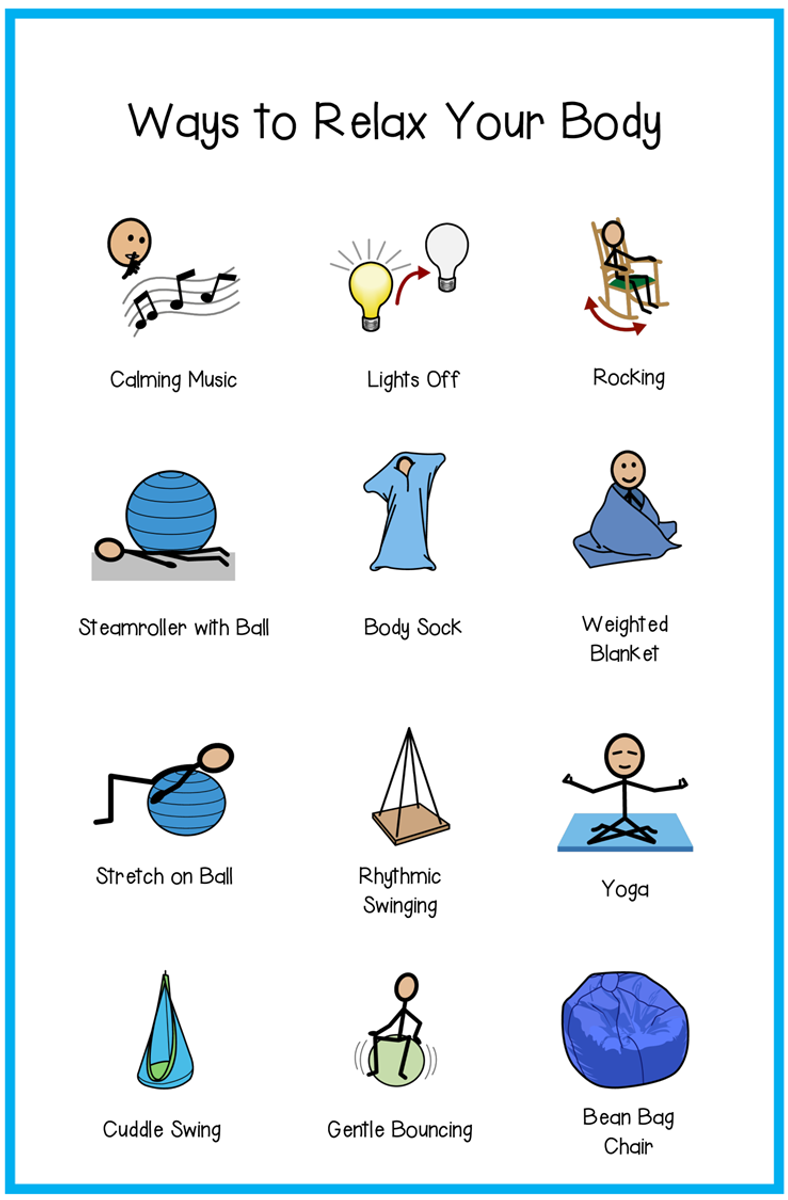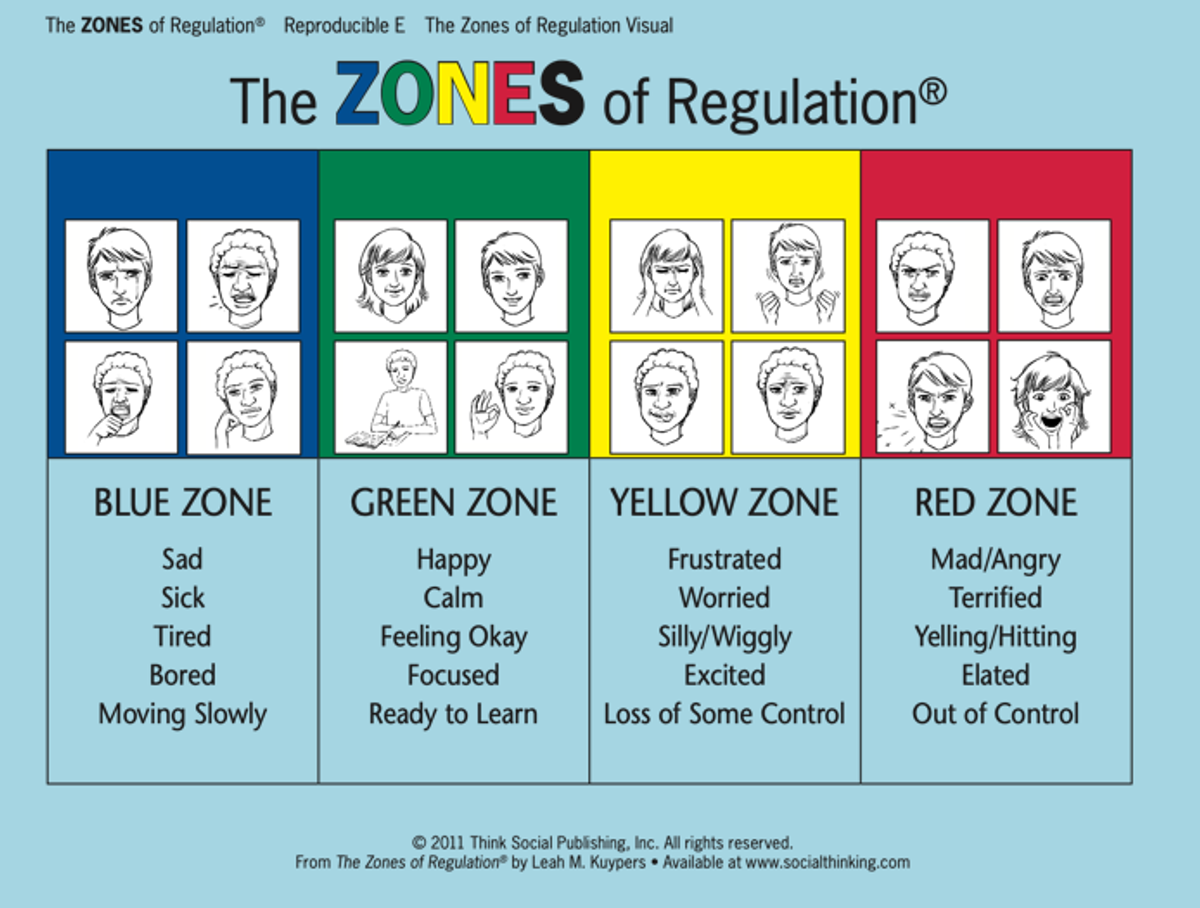Wellbeing and Safety

Today we take a closer look at : Attention-Deficit Hyperactivity Disorder
What is it?
Attention deficit hyperactivity disorder (abbreviated as ADHD, and sometimes referred to as ADD in the past) is a neuro-developmental disorder that begins in early childhood and affects a person’s ability to exert age-appropriate self-control. Children with ADHD may find it hard to concentrate, become hyperactive or disruptive to others, are impulsive and find it hard to emotionally regulate.
The role of Executive Functions
The mental processes people rely on to self regulate are called executive functions. The executive functions enable a person to control their thoughts, words, actions and emotions. They also assist them to perceive and manage time, and to direct and manage their behaviour over time.
Executive functioning abilities are thought to develop sequentially, one skill building atop the next, starting at around age 2 and reaching full development at around age 30. Children with ADHD lag significantly behind in the development of their executive functions.
What are the signs?
Inattentive symptoms
- not paying attention to details, or making careless mistakes in schoolwork
- having difficulty remaining focused in class, conversations or reading
- avoiding tasks that take continuous mental effort (for example, homework)
- not following through on instructions, a tendency to start but not finish tasks
- having difficulty organising tasks, activities, belongings or time
- being easily distracted or daydreaming
- losing things
- not seeming to listen when spoken to
- being forgetful with everyday tasks, such as chores and appointments
Hyperactive-impulsive symptoms
- fidgeting and squirming
- running or climbing in situations where it is inappropriate, leaving their seat in class
- talking non-stop
- interrupting conversations, games or activities or using people’s things without permission
- blurting out an answer before a question has been finished
- having difficulty playing quietly
- having difficulty waiting their turn
- leaving the seat in class or in other situations where sitting is expected
- being constantly in motion, as if 'driven by a motor'
- struggling to play or do tasks quietly
Where should I go for more information?
Attention deficit hyperactivity disorder - ADHD/ADD symptoms, causes and diagnosis | healthdirect
https://www.adhdaustralia.org.au/about-adhd/
For a diagnosis of ADHD, individuals need to be referred to a behavioural paediatrician for further assessment. Contact Kim Ancrum if you would like some contacts in our area.
How can we help children to regulate?
*Sensory supports
*Calming techniques
*Thinking strategies to help organise thought processes
In the junior years at BBPS, all students are exposed to the Zones of Regulation as a way to build a common language about our emotions.
A child with ADHD will often benefit from working closely with a psychologist and/or occupational therapist to further develop an understanding of useful strategies.




